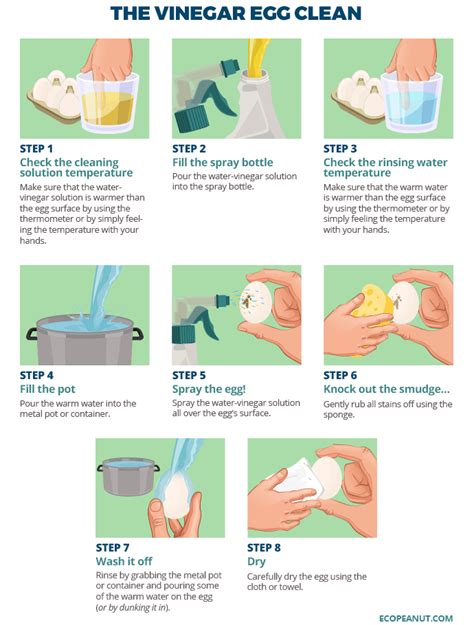How to Wash Fresh Eggs: A Guide to Safe Handling and Storage
Washing fresh eggs might seem straightforward, but improper techniques can compromise their safety and shelf life. This comprehensive guide will walk you through the best practices for washing fresh eggs, ensuring they remain fresh and safe for consumption.
Why Wash Eggs?
Before diving into the how-to, let's understand the why. Washing eggs removes surface contaminants like bacteria, dirt, and poultry droppings. This crucial step significantly reduces the risk of salmonella and other foodborne illnesses. However, it's crucial to wash them correctly; improper washing can actually increase the risk of contamination.
When to Wash Fresh Eggs
Ideally, you should wash eggs just before you use them. This minimizes the risk of bacteria penetrating the eggshell pores. Washing eggs immediately after collection is also acceptable, but avoid washing and storing them for later use.
How to Wash Fresh Eggs Properly: A Step-by-Step Guide
What you'll need:
- Cool water: Never use hot water, as this can crack the eggshells and allow bacteria to enter.
- Mild detergent: A gentle dish soap is ideal. Avoid harsh chemicals.
- Clean brush (optional): A soft-bristled brush helps remove stubborn dirt.
- Clean bowl: Use a clean bowl to wash the eggs.
- Clean drying rack or paper towels: Ensure complete drying to prevent bacterial growth.
Step-by-Step Instructions:
- Prepare your workspace: Clean your sink and surrounding area thoroughly to prevent cross-contamination.
- Wash your hands: Thoroughly wash your hands with soap and water before handling the eggs.
- Fill the bowl: Fill the bowl with cool water and add a small amount of mild detergent.
- Gentle scrubbing: Gently scrub each egg with your hand or a soft-bristled brush. Focus on removing any visible dirt or debris. Avoid excessive scrubbing, as this can damage the eggshell.
- Rinse thoroughly: Rinse each egg under cool running water to remove all traces of detergent.
- Dry completely: Pat the eggs dry with a clean paper towel or place them on a clean drying rack until completely dry. Moisture promotes bacterial growth.
Things to Avoid When Washing Eggs:
- Hot water: Hot water can crack the eggshells and lead to contamination.
- Harsh chemicals: Strong detergents or disinfectants can damage the eggshell and affect the flavor of the eggs.
- Soaking: Avoid soaking eggs in water for extended periods. This can weaken the shell and increase the risk of contamination.
- Washing eggs for storage: Washing eggs intended for long-term storage is generally discouraged, unless done immediately after collection. The pores in the eggshell will remain open increasing the chance of bacterial penetration.
Storing Washed Eggs
Once washed and dried, store your eggs in the refrigerator in their original carton or in a dedicated egg container. This helps maintain their freshness and prevents them from absorbing odors from other foods.
Conclusion: Keeping Your Eggs Safe and Fresh
Washing fresh eggs properly is essential for food safety and maintaining their quality. By following these simple steps and avoiding common mistakes, you can enjoy delicious and safe eggs for your culinary creations. Remember, the key is gentle handling, cool water, thorough rinsing, and complete drying.
